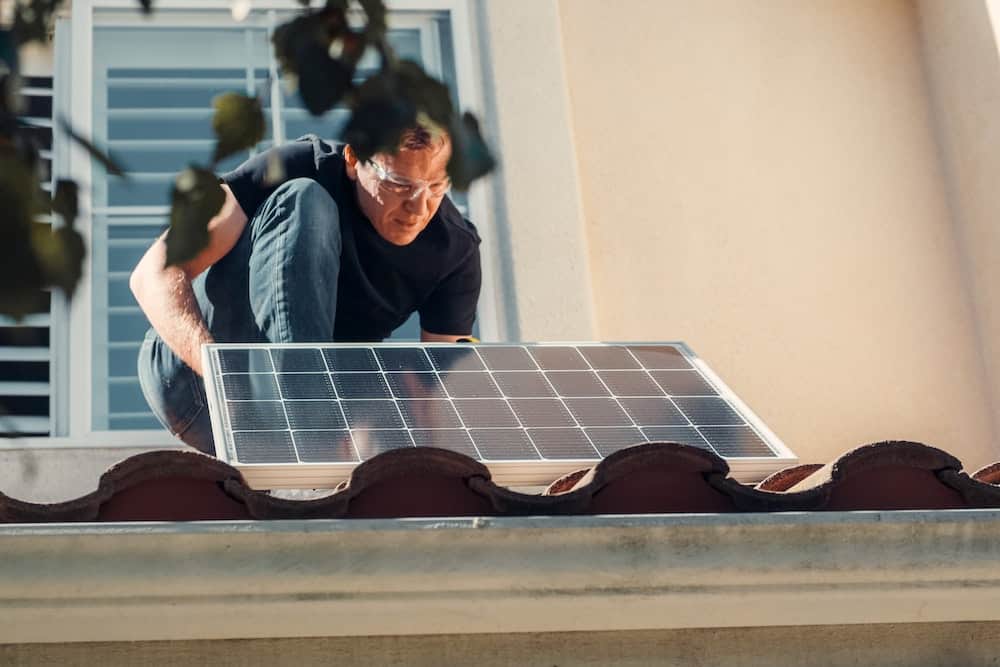Featured
Solar panels can save homeowners a lot of money each month, but they have to pay the upfront costs first. On average, it costs homeowners about $20,000 for a solar panel installation.
Fortunately, there are plenty of solar panel financing options to help more people run their homes on green energy. Have you considered different solar panel options but aren’t sure if it fits your budget?
The following guide will explain the most common ways to finance your new solar home setup.
Personal Loans
Personal loans are usually the best type of financing when it comes to solar panel installation. A personal loan for solar panels offers borrowers fixed payments and interest rates each month that won’t fluctuate throughout the loan’s life.
Note that some loans for home improvements come with a higher limit or lengthier term. It’s to help make it more affordable for homeowners to get the best solar panels for their needs.
A big benefit of personal loans is that they allow you to obtain cash quickly without any fees or obligations. You also don’t need to put your house up for collateral because they’re unsecured loans. Homeowners don’t need much equity to qualify for the loans either.
Although, you’ll need to have a good to great credit score if you want to qualify for the best rates possible. If you don’t currently have a good score, you might only qualify for a loan with a huge interest rate that makes your solar investment much more costly.
So, only consider using a personal loan for your solar panels if you need financing quickly or if you have good credit.
FHA Loans
There are a couple of kinds of mortgage-style loans that can help you finance buying a home and panel installation at the same time. They are the FHA 203(k) loan and the Fannie Mae HomeStyle Renovation loan which also works for repairs and improvements.
Key benefits
Using a Fannie Mae HomeStyle Renovation loan can offer up to a 97% loan-to-value ratio. The loan is also easier for homeowners to qualify for than other financing options. Homeowners can also use either mortgage loan to refinance and pay for solar improvements.
It’s important to note that home equity loans typically have much higher interest rates than other options. Fannie Mae loans usually have the most competitive rates but tend to require more restrictions and red tape.
For example, all remodeling work needs to be finished within 1 year of receiving the funding. The loans also have steeper fees and closing costs, too.
To get the most out of a mortgage-style loan, only consider it if you plan to buy a home and install panels simultaneously. They might also be a decent option if you don’t qualify for personal loans because of your credit.
Home Equity Loans
You might want to go with a home equity loan or a HELOC if you have a good amount of equity in your house. You’ll essentially borrow from your equity to fund your solar panel installation.
They have a lot of similarities to the previously mention personal loan option. For example, they offer fixed interest rates, fixed monthly payments, and fixed payment schedules.
HELOCs offer homeowners a line of credit to borrow from similar to using credit cards. You’ll usually get a variable interest rate with this option, potentially causing payments to increase or decrease as your rate and account balance change.
They have lower interest rates than other options as long as you have enough home equity and a good or excellent credit score. HELOCS might even allow you to subtract the interest you pay from your taxes to save more money.
Keep in mind that you can usually only borrow 85% or less of your home’s value with equity loans. Both HELOCs and equity loans have more complicated application processes than personal loans, too.
Consider a home equity loan or HELOC if you have enough equity in your home and know that solar panels can raise its value. Like FHA loans, these loans are also great choices if your credit prevents you from getting personal loans.

Factoring in Tax Benefits
When budgeting out your solar panel financing, remember to factor in tax perks. These tax benefits can greatly help offset the expense of your new solar panels.
One of the biggest solar tax benefits is a 30% credit for installations via the Inflation Reduction Act. It’s offered to homeowners who buy and install their solar panels on either their main or secondary homes located in the US.
The helpful tax credit will go all the way through 2032 to encourage homeowners to make the switch to solar energy. Note that the credit amount drops to 26% in 2033 and to 22% in 2034 before completely disappearing in 2035.
You should also look into any tax incentives offered by the state you live in for even more savings. For instance, some US states let homeowners trade their extra solar power for energy bill credits.
In some states such as New Mexico and New York, you don’t have to pay sales tax for your solar panels. Factor in all possible savings from tax incentives and think about investing in higher-quality panels if possible.
Understanding Solar Panel Financing
Now you have several options for solar panel financing so that you can upgrade your home. Remember that personal loans are the best option if you have good credit, but mortgage-style loans and equity loans make excellent alternatives.
We hope this guide helps you choose the best way to fund your solar panels no matter what your budget is. Check out the rest of our site for more technology tips and ways to have a smarter home.






























